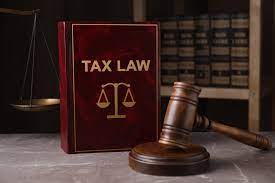A tax compromise is a type of debt settlement between you and the IRS. This is the most popular tax payment option because it allows you to reduce your taxes to a smaller amount than you owe. You need to be able to pay off your debt in full in order to qualify for an OIC, so be sure that you have filed all of your tax returns and made all of your required federal tax deposits. Moreover, you must be able to make the minimum monthly payments.
 An offer in compromise is a voluntary arrangement between the IRS and a taxpayer. A successful tax debt settlement agreement must satisfy the IRS’s three criteria in order to qualify. The first requirement is that the taxpayer’s financial condition is in distress. It should be able to pay at least 80% of the debt in the next 12 months. This means that your financial condition is in dire straits. It is important to note that the IRS will generally accept your offer in a tax settlement, but you should always check the qualifications of your tax professional before signing any paperwork.
An offer in compromise is a voluntary arrangement between the IRS and a taxpayer. A successful tax debt settlement agreement must satisfy the IRS’s three criteria in order to qualify. The first requirement is that the taxpayer’s financial condition is in distress. It should be able to pay at least 80% of the debt in the next 12 months. This means that your financial condition is in dire straits. It is important to note that the IRS will generally accept your offer in a tax settlement, but you should always check the qualifications of your tax professional before signing any paperwork.
In 2017, the IRS approved 25,000 of 62,000 offers in compromise. That’s almost $256 million in forgiven back taxes, and the average amount accepted was $10,234. That means that the IRS has an overall approval rate of 40.3%. While the IRS’s OIC acceptance rate is low, it is a good option for taxpayers with lower incomes. People who are on the verge of bankruptcy should also consider an Offer in Compromise to avoid bankruptcy.
Before pursuing an Offer in Compromise, it is important to understand the requirements and benefits. For example, if you owe more than you can afford to pay, this might not be a good option. A taxpayer should consider other payment options, as it is not meant for everyone. If the offer is approved, the IRS will then approve it. Otherwise, the IRS will reject it. However, it’s important to be realistic about the amount that you owe.
If you’re able to pay less than the amount owed, then the IRS may be able to accept it. A taxpayer can choose a lesser amount and the IRS can’t collect taxes after ten years. A tax-compromise will not prevent you from filing bankruptcy and you’ll get your refund. Those who have filed for a Proposal must follow the instructions on the letter. If you’ve received a rejection letter, you can appeal the decision by submitting an official appeal.
An Offer in Compromise is a way to eliminate your debt for a lower amount than what you owe. The IRS must decide that a lesser amount will facilitate effective collection. In some cases, the IRS may require additional financial documentation or information to determine eligibility. For instance, a person must earn a minimum income of $700 and have a household income of at least $11,000 per month. Another type of tax-compromise is the Offer in Compromise. For more information visit www.missouritaxattorneys.net.
 In Louisiana, the statute of limitations applies to tax evasion, and the time limit varies from state to state. The statute of limitations is a legal limitation that limits the time the government can press charges against you. The date the law begins to run affects the statute of limitations. So, it’s important to get legal representation as soon as possible. You don’t want to be caught in this situation by yourself.
In Louisiana, the statute of limitations applies to tax evasion, and the time limit varies from state to state. The statute of limitations is a legal limitation that limits the time the government can press charges against you. The date the law begins to run affects the statute of limitations. So, it’s important to get legal representation as soon as possible. You don’t want to be caught in this situation by yourself.